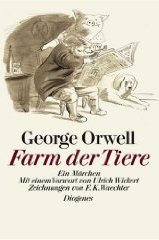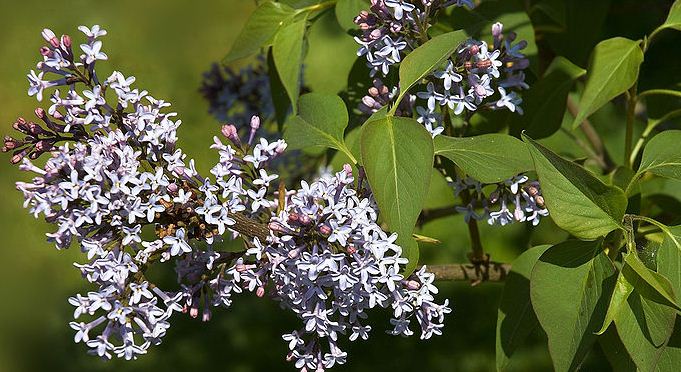April ist der übelste Monat von allen, treibt
Flieder aus der toten Erde, mischt
Erinnerung mit Lust, schreckt
Spröde Wurzel auf mit Frühlingsregen.
Der Winter hat uns warm gehalten, hüllte
Das Land in vergeßlichen Schnee, fütterte
Ein wenig Leben durch mit eingeschrumpelten Knollen.
Der Sommer kam als Überraschung, über den Starnberger See
Mit Regenschauer; wir flüchteten unter die Kolonnaden,
Die Sonne kam wieder, wir gingen weiter zum Hofgarten
Und tranken Kaffee und redeten eine Stunde. […]
Das öde Land von T.S. Eliot
T.S. Eliot
April ist der übelste Monat von allen, treibt
Flieder aus der toten Erde, mischt
Erinnerung mit Lust, schreckt
Spröde Wurzel auf mit Frühlingsregen.
Der Winter hat uns warm gehalten, hüllte
Das Land in vergeßlichen Schnee, fütterte
Ein wenig Leben durch mit eingeschrumpelten Knollen.
Der Sommer kam als Überraschung, über den Starnberger See
Mit Regenschauer; wir flüchteten unter die Kolonnaden,
Die Sonne kam wieder, wir gingen weiter zum Hofgarten
Und tranken Kaffee und redeten eine Stunde. […]
Das öde Land (Norbert Hummelts Version) von T.S. Eliot
The Waste Land von T.S. Eliot
The Burial of the Dead
April is the cruellest month, breeding
Lilacs out of the dead land, mixing
Memory and desire, stirring
Dull roots with spring rain.
Winter kept us warm, covering
Earth in forgetful snow, feeding
A little life with dried tubers.
Summer surprised us, coming over the Starnbergersee
With a shower of rain; we stopped in the colonnade,
And went on in sunlight, into the Hofgarten,
And drank coffee, and talked for an hour.
Bin gar keine Russin, stamm‘ aus Litauen, echt deutsch.
And when we were children, staying at the archduke’s,
My cousin’s, he took me out on a sled,
And I was frightened. He said, Marie,
Marie, hold on tight. And down we went.
In the mountains, there you feel free.
I read, much of the night, and go south in the winter.
What are the roots that clutch, what branches grow
Out of this stony rubbish? Son of man,
You cannot say, or guess, for you know only
A heap of broken images, where the sun beats,
And the dead tree gives no shelter, the cricket no relief,
And the dry stone no sound of water. Only
There is shadow under this red rock,
(Come in under the shadow of this red rock),
And I will show you something different from either
Your shadow at morning striding behind you
Or your shadow at evening rising to meet you;
I will show you fear in a handful of dust.
Frisch weht der Wind
Der Heimat zu
Mein Irisch Kind,
Wo weilest du?
„You gave me hyacinths first a year ago;
They called me the hyacinth girl.“
†”Yet when we came back, late, from the Hyacinth garden,
Your arms full, and your hair wet, I could not
Speak, and my eyes failed, I was neither
Living nor dead, and I knew nothing,
Looking into the heart of light, the silence.
Oed‘ und leer das Meer.
Madame Sosostris, famous clairvoyante,
Had a bad cold, nevertheless
Is known to be the wisest woman in Europe,
With a wicked pack of cards. Here, said she,
Is your card, the drowned Phoenician Sailor,
(Those are pearls that were his eyes. Look!)
Here is Belladonna, the Lady of the Rocks,
The lady of situations.
Here is the man with three staves, and here the Wheel,
And here is the one-eyed merchant, and this card,
Which is blank, is something he carries on his back,
Which I am forbidden to see. I do not find
The Hanged Man. Fear death by water.
I see crowds of people, walking round in a ring.
Thank you. If you see dear Mrs. Equitone,
Tell her I bring the horoscope myself:
One must be so careful these days.
Unreal City,
Under the brown fog of a winter dawn,
A crowd flowed over London Bridge, so many,
I had not thought death had undone so many.
Sighs, short and infrequent, were exhaled,
And each man fixed his eyes before his feet.
Flowed up the hill and down King William Street,
To where Saint Mary Woolnoth kept the hours
With a dead sound on the final stroke of nine.
There I saw one I knew, and stopped him, crying „Stetson!
You who were with me in the ships at Mylae!
That corpse you planted last year in your garden,
Has it begun to sprout? Will it bloom this year?
Or has the sudden frost disturbed its bed?
Oh keep the Dog far hence, that’s friend to men,
Or with his nails he’ll dig it up again!
You! hypocrite lecteur!†”mon semblable,†”mon frère!“ […]
1944 zu brisant: T.S. Eliot weigerte sich Orwells Farm der Tiere zu verlegen
T.S. Eliot (1888 – 1965), war englischsprachiger Lyriker, Dramatiker und Kritiker. 1922 erschien sein Gedicht The Waste Land (Das öde Land), womit er schlagartig berühmt wurde. 1948 wurde Eliot mit dem Literaturnobelpreis ausgezeichnet.
Ab 1925 förderte er als Leiter des Verlages Faber & Faber insbesondere die Werke moderner englischer Dichter.
 Eliots Witwe hat nun Briefe und Dokumente aus seinem Nachlass veröffentlicht. Daraus geht hervor, dass sich Eliot 1944 geweigert hatte George Orwells Roman „Farm der Tiere“ zu veröffentlichen. Zu brisant sei der Inhalt, zwar gut geschrieben, die Argumention jedoch „trotzkistisch und daher nicht überzeugend“.
Eliots Witwe hat nun Briefe und Dokumente aus seinem Nachlass veröffentlicht. Daraus geht hervor, dass sich Eliot 1944 geweigert hatte George Orwells Roman „Farm der Tiere“ zu veröffentlichen. Zu brisant sei der Inhalt, zwar gut geschrieben, die Argumention jedoch „trotzkistisch und daher nicht überzeugend“.
Vier Verlage lehnten die Veröffentlichung von George Orwells Farm der Tiere (Animal Farm) ab, bevor 1945 der Londoner Verlag Secker & Warburg den Roman publizierte.
Das Original-Script enthielt ein Vorwort mit dem Titel The Freedom of the Press, in welchem Orwell die britische Selbstzensur, die Unterdrückung kritischer Äußerungen gegen den damaligen Alliierten Russland und schließlich die Unterdrückung des Buches durch die britische Regierung kritisierte.
Das Vorwort fiel schließlich genau dieser Zensur zum Opfer und war deshalb in der im August 1945 veröffentlichten Erstausgabe und den meisten der folgenden Ausgaben nicht enthalten.
Quelle: Süddeutsche Zeitung, Wikipedia
